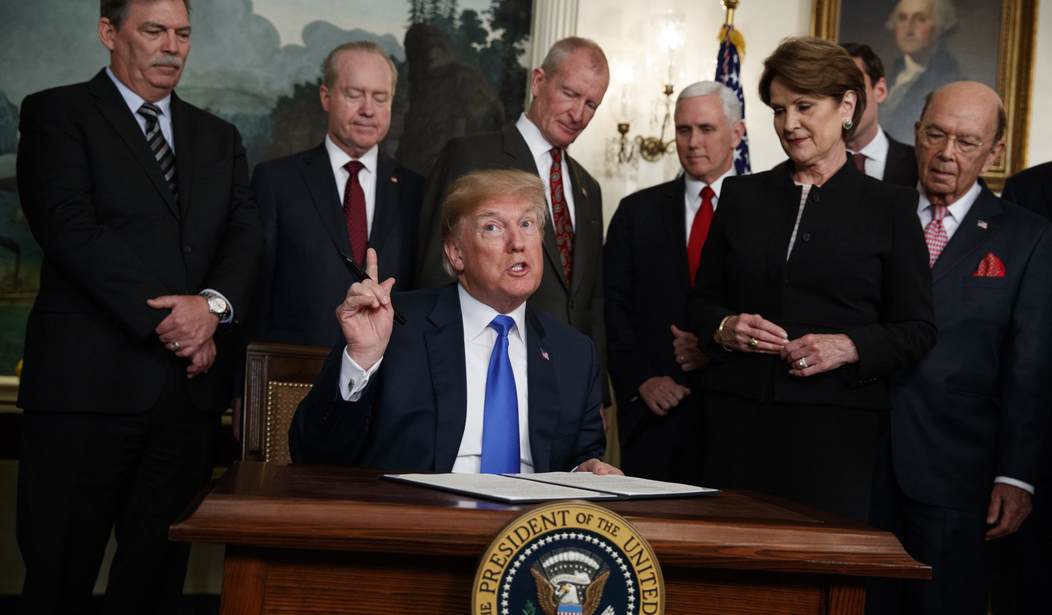The Trump administration is set to impose a 10% tariff on another $200 billion in Chinese goods, according to officials. The move could come as early as Monday.
Officials say that the duty could rise to 25%, depending on the progress in trade talks with China that are set to resume next week.
The administration has threatened these set of tariffs for months as punishment for China’s policies that have resulted in intellectual property theft or mandated technology transfers on U.S. companies doing business there. Apublic comment period on Trump’s latest set of tariffs formally ended last week, clearing the way for the president to make good on the threat.
In recent months, the administration has typically done an analysis of public comments before carrying through on announced tariffs, which right now are imposed on about $53 billion in Chinese imports. But Trump’s remarks in recent weeks have indicated that he does not want to delay his plan.
However, pressure from American businesses may have succeeded in the administration restraining its fire just a bit in the latest round. Many businesses had urged Trump to consider the effects of the tariffs on consumers, especially ahead of the retail holiday season.
So far, the tactic of punishing China for their trade surplus with the U.S. doesn’t seem to be working. In fact, it may be backfiring.
“Continuing the tit-for-tat tariff escalation with China only serves to expand the harm to more U.S. economic interests, including farmers, families, business, and workers,” the National Retail Federation and 150 other business groups said in a letter to U.S. Trade Representative Robert Lighthizer this month.
The president has also threatened to impose tariffs on virtually all $505 billion that the United States imports from China. “I hate to say that, but behind that, there’s another $267 billion ready to go on short notice if I want,” Trump told reporters aboard Air Force One last week.
China has indicated that it may skip trade talks scheduled for next week to protest the new tariffs. There is great uncertainty surrounding these talks, which really haven’t gone anywhere.
Meanwhile, China’s leaders are continuing to court U.S. businesses to get them to lobby against the Trump tariffs. On Sunday, representatives from American multinationals, along with academics and others from both China and the U.S., attended a special session of the China Development Forum at the Diaoyutai State Guesthouse, a complex of buildings on manicured grounds. The policy conclave, usually held in the spring, was convened to mark the 40th anniversary of the Communist government’s adoption of pro-market policies.
At the same time, a group of Wall Street bankers were invited to a financial forum in a different guesthouse building and are scheduled to meet with Vice Premier Wang Qishan on Monday.
At some point, tariffs become self defeating. We haven’t reached that point yet, but as we continue to punish certain Chinese industries and they target us, the resulting economic slowdown could lead to the loss of tens of thousands of jobs.










Join the conversation as a VIP Member